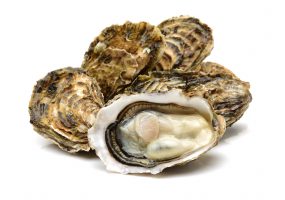 Audience
Audience
- Consumers who recently experienced symptoms of foodborne illness after eating raw oysters
- Restaurants that sell raw oysters in California, Nevada, New York, and Arizona
Product
- Oysters harvested from Estero El Cardon, Baja California Sur, Mexico
- Oysters were distributed primarily to California, Nevada, New York, and Arizona
- Oysters were sold to wholesale distributors with direct sales to restaurants and not to grocery retail outlets.
Purpose
Consumers should not purchase oysters marketed as being harvested from Estero El Cardon, in Baja California Sur, Mexico from restaurants. Consumers who have recently experienced symptoms of foodborne illness should contact their healthcare provider and report their symptoms and receive care.
Restaurants and retailers should not serve oysters from the Estero El Cardon harvest area in Baja California Sur, Mexico. Restaurants and retailers should dispose of any products with harvest tags that indicate a growing area of Estero El Cardon by throwing them away.
Symptoms of Shigella Illness (Shigellosis)
Shigella is a bacterium that spreads from contaminated feces. It often spreads through unclean water that an infected person has been in. Food can become contaminated when handled by an infected person who did not use proper hand hygiene after going to the bathroom, or if contaminated water is used in the process of growing or preparing the food.
Symptoms of shigellosis generally develop within 8 hours or up to about 2 days. Although shigellosis is often mild and goes away by itself in a week or less, it can become very serious in some cases. Severe cases can be treated with certain antibiotics. Symptoms of shigellosis may include watery stool that may have blood, pus, or mucus in it, vomiting, cramping, and fever. Young children, the elderly, and people with a weak immune system are more likely than others to develop severe illness.
If you suspect you have symptoms of shigellosis, contact a health professional.
Summary of Problem and Scope
The FDA is investigating a subset of a larger outbreak investigation being conducted by the Centers for Disease Control and Prevention. Between the harvesting dates of February 12, 2019 and April 9, 2019, five ill patients reported eating raw oysters shortly before becoming ill with Shigella flexneri. One of the five patients was hospitalized; there have been no deaths. The last illness onset was April 17, 2019. Laboratory analyses were used to confirm the reported clinical illnesses and traceback information indicated the implicated shellfish were harvested from Estero El Cardon, in Baja California Sur, Mexico.
The FDA confirmed that oysters harvested in Estero El Cardon, Baja California Sur, Mexico, were distributed to California, Nevada, New York, and Arizona with illnesses reported in California, Nevada and New Hampshire. The New Hampshire case reported eating at a restaurant in California shortly before becoming ill. It is possible that additional states received these potentially contaminated oysters either directly from Mexico or through further distribution within the U.S.
On May 7, 2019, the Mexican Shellfish Sanitation Program authorities voluntarily closed the growing area of Estero El Cardon and halted oyster harvesting in response to the reported illnesses. The shelf-life of fresh, raw oysters is limited. All raw oysters from this growing area are no longer expected to be available to consumers. For more information please see www.issc.org/notices.
Recommendations for Consumers
Consumers who have symptoms should contact their health care provider to report their symptoms and receive care.
To report a complaint or adverse event (illness or serious allergic reaction), you can
- Call an FDA Consumer Complaint Coordinator if you wish to speak directly to a person about your problem.
- Complete an electronic Voluntary MedWatch form online.
- Complete a paper Voluntary MedWatch form that can be mailed to FDA.
Visit www.fda.gov/fcic for additional consumer and industry assistance.
Recommendations for Retailers
In the event that retailers and/or other food service operators are found to have handled recalled or other potentially contaminated food in their facilities, they should:
- Contact their local health department and communicate to their customers regarding possible exposure to Shigella.
- Wash the inside walls and shelves of the refrigerator, cutting boards and countertops, and utensils that may have contacted contaminated foods; then sanitize them with a solution of one tablespoon of chlorine bleach to one gallon of hot water; then dry with a clean cloth or paper towel that has not been previously used.
- Wash and sanitize display cases and surfaces used to potentially store, serve, or prepare potentially contaminated foods.
- Retailers that have sold bulk product should clean and sanitize the containers used to hold the product.
- Wash hands with warm water and soap following the cleaning and sanitation process.
- Conduct regular frequent cleaning and sanitizing of cutting boards and utensils used in processing to help minimize the likelihood of cross-contamination.
FDA Actions
Mexican health officials closed the Estero El Cardon growing area on May 7, 2019. The FDA continues to work with Mexico’s health authorities, and state and local partners continue to verify that this product has been successfully removed from commerce and to ensure that the raw oysters were not further distributed.